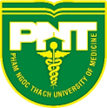Introduction In recent years, the healthcare sector has witnessed a transformative shift thanks to the synergy of health literacy, digital health, and Artificial Intelligence (AI). This powerful trio is reshaping how health information is accessed, understood, and utilized, leading to more informed health decisions and improved outcomes. In this blog, we’ll explore the interplay of these three elements and their profound impact on the future of healthcare.
Understanding Health Literacy in the Digital Era Health literacy is no longer just about understanding doctor’s prescriptions or navigating the healthcare system. It has evolved to include the ability to seek, comprehend, and apply health information from digital platforms. With an abundance of online resources, patients are more empowered than ever but also face the challenge of discerning reliable information from misinformation.
The Rise of Digital Health Digital health, encompassing telehealth, mobile health applications, wearable technologies, and electronic health records, is revolutionizing patient care. These technologies provide unprecedented access to health information and services, making healthcare more accessible, convenient, and personalized.
AI: The Game Changer in Healthcare AI’s role in healthcare is rapidly expanding. From analyzing complex medical data to assisting in diagnosis and treatment plans, AI algorithms offer significant benefits. They enhance the precision and efficiency of healthcare services, leading to better patient outcomes and streamlined healthcare processes.
Combining Forces for Improved Health Outcomes The combination of health literacy, digital health, and AI has the potential to significantly improve health outcomes. Educating patients to effectively use digital health tools, coupled with AI’s capability to provide personalized insights, can lead to more informed health decisions and proactive health management.
Addressing Challenges and Ethical Considerations However, this integration is not without challenges. Issues such as data privacy, the digital divide, and ensuring AI algorithms are unbiased and ethical must be addressed. It’s crucial to develop strategies that protect patient data and ensure equitable access to these technologies.
The Future of Healthcare: Empowered and Informed The future of healthcare lies in a model that is more informed, connected, and personalized. By enhancing health literacy, leveraging digital health tools, and integrating AI, healthcare can be transformed to better meet the needs of individuals and communities.
Conclusion The convergence of health literacy, digital health, and AI is a powerful force in modern healthcare. It offers opportunities for more personalized, efficient, and accessible care. As we move forward, it’s essential to navigate these advancements thoughtfully, ensuring that they benefit all segments of society and lead to a more empowered and health-literate population. The journey towards a transformed healthcare system is complex but full of promise, with these technologies at the forefront of change.
